DUBAI (AP) – The United Arab Emirates (UAE) attempted to dry out on Wednesday from the heaviest rain the desert nation has ever recorded – a deluge that flooded out Dubai International Airport and disrupted flights through the world’s busiest airfield for international travel.
The state-run WAM news agency called the rain on Tuesday “a historic weather event “that surpassed” anything documented since the start of data collection in 1949″. That’s before crude oil was discovered in this energy-rich nation then part of a British protectorate known as the Trucial States.
Rain also fell in Bahrain, Oman, Qatar and Saudi Arabia, but was acute across the UAE. The flooding sparked speculation that cloud seeding, flying small planes through clouds dispersing chemicals aimed at getting rain to fall, may have contributed to the deluge. But experts said the storm systems that produced the rain were forecast well in advance and that cloud seeding alone would not have caused such flooding.
Several reports quoted meteorologists at the National Centre for Meteorology as saying they flew six or seven cloud-seeding flights before the rains.
Flight-tracking data analysed by The Associated Press showed one aircraft affiliated with the UAE’s cloud-seeding efforts flew around the country on Monday.
The National, an English-language newspaper in Abu Dhabi quoted an anonymous official at the centre on Wednesday as saying no cloud seeding took place on Tuesday, without acknowledging any earlier flights.
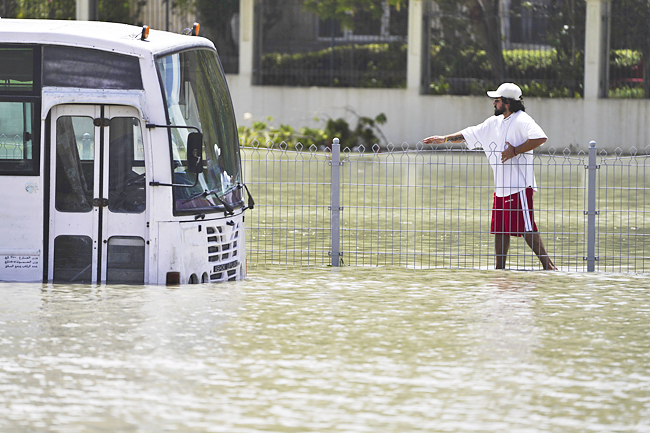
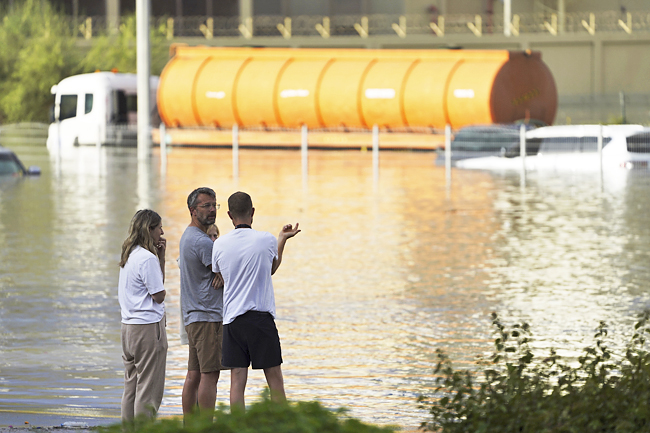
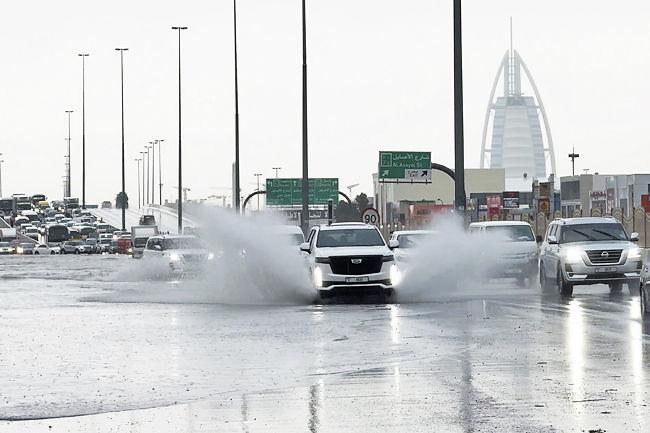
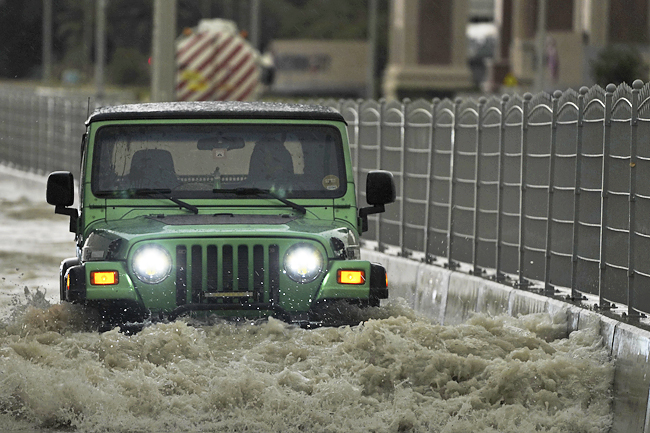
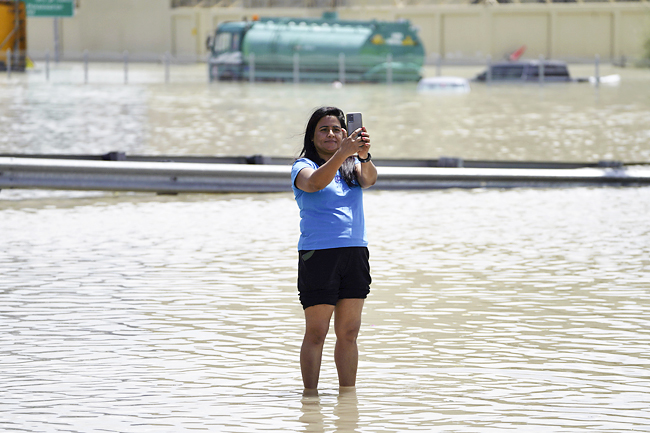
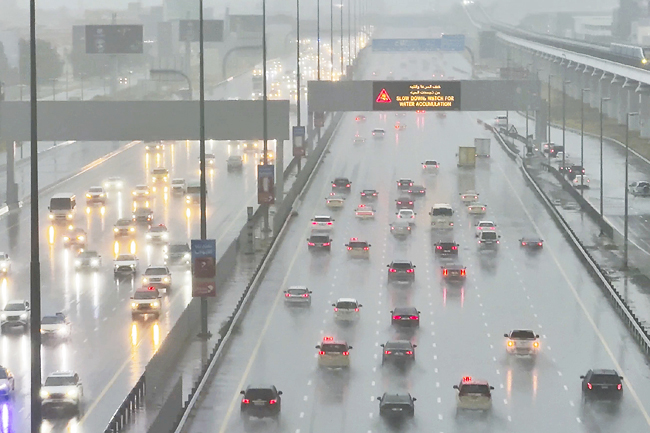
The UAE, which heavily relies on energy desalination plants to provide water, conducts cloud seeding in part to increase its dwindling, limited groundwater.
A meteorologist for Yale Climate Connections Jeff Masters said the flooding in Dubai was caused by an unusually strong low pressure system that drove many rounds of heavy thunderstorms.
“You don’t need cloud seeding’s influence to account for the record deluge in Dubai,” Masters said. Another expert, Steven Siems of Australia’s Monash University, agreed.
Given the size of the storm, any seeding effort would simply be pointless,” he said. “Nature is already doing the job perfectly well.”
Scientists also said climate change in general is responsible for more intense and more frequent extreme storms, droughts, floods and wildfires around the world.
Dubai hosted the United Nations’ COP28 climate talks just last year. Rising temperatures and other effects of global warming long have been viewed as a threat to life in the already-baking region.
The rains began late on Monday, soaking the sands and roadways of Dubai with some 20 millimetres (mm) of rain, according to meteorological data collected at Dubai International Airport. The storms intensified around 9am on Tuesday and continued throughout the day, dumping more rain and hail onto the overwhelmed city.
By the end of Tuesday, more than 142mm of rainfall had soaked Dubai over 24 hours. An average year sees 94.7mm of rain at Dubai International Airport. Standing water lapped on taxiways as aircraft landed. Arrivals were halted on Tuesday night, and passengers struggled to reach terminals through water-covered roads.



